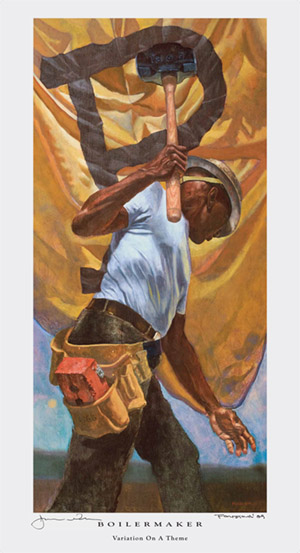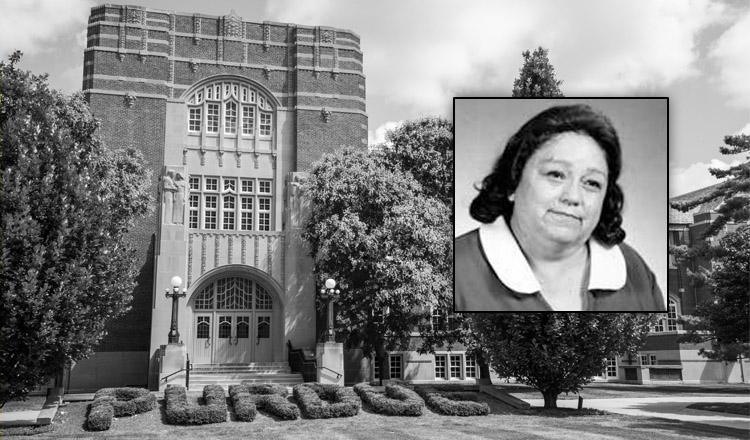Helen Bass Williams (1916–1991) was a significant figure in the Civil Rights movement before coming to Purdue in 1968 as an instructor in French and a counselor in the School of Humanities, Social Science, and Education (HSSE).
Born and raised in rural southern Illinois, Williams earned two master’s degrees, one in public health from North Central College in Durham, North Carolina, and the other in French and education from Southern Illinois University.
Williams worked throughout the South during the Martin Luther King Jr. era as a public health worker, educator, and civil rights leader. She was beaten, gassed, and jailed in Mississippi as she fought for freedom and civil rights.
When Bass Williams was hired as Purdue’s first black faculty member in 1968, she brought to Purdue a living story of the Deep South during the civil rights era and the crisis facing America at the time. She served on committees that helped establish programs that reflected the University’s commitment to change, including attempts to attract more minority students and faculty, develop more diverse course content, and create the Black Studies program.

Boilermaker
To commemorate the work and progress of Purdue’s black alumni, we’re offering new members a limited-run print of a campus icon — the Boilermaker painting by world-renowned black artist Derek Fordjour. Learn more
Her home near campus quickly became a welcoming place for many black students, whether for rented rooms, friendly meals, or conversation regarding concerns about the campus social climate and academic challenges. This informal nurturing role turned into an institutional one as Bass Williams helped found what would become the Black Culture Center and The Learning Center. She also served on the first executive board of the Black Faculty and Staff Council in 1975.
After retirement, Bass Williams returned to her home in southern Illinois and passed away in 1991. In 1993, the Helen Bass Williams scholarship award was established as a tribute to her life and work.
From Women in Purdue History, Susan Bulkeley Butler Women’s Archives.

